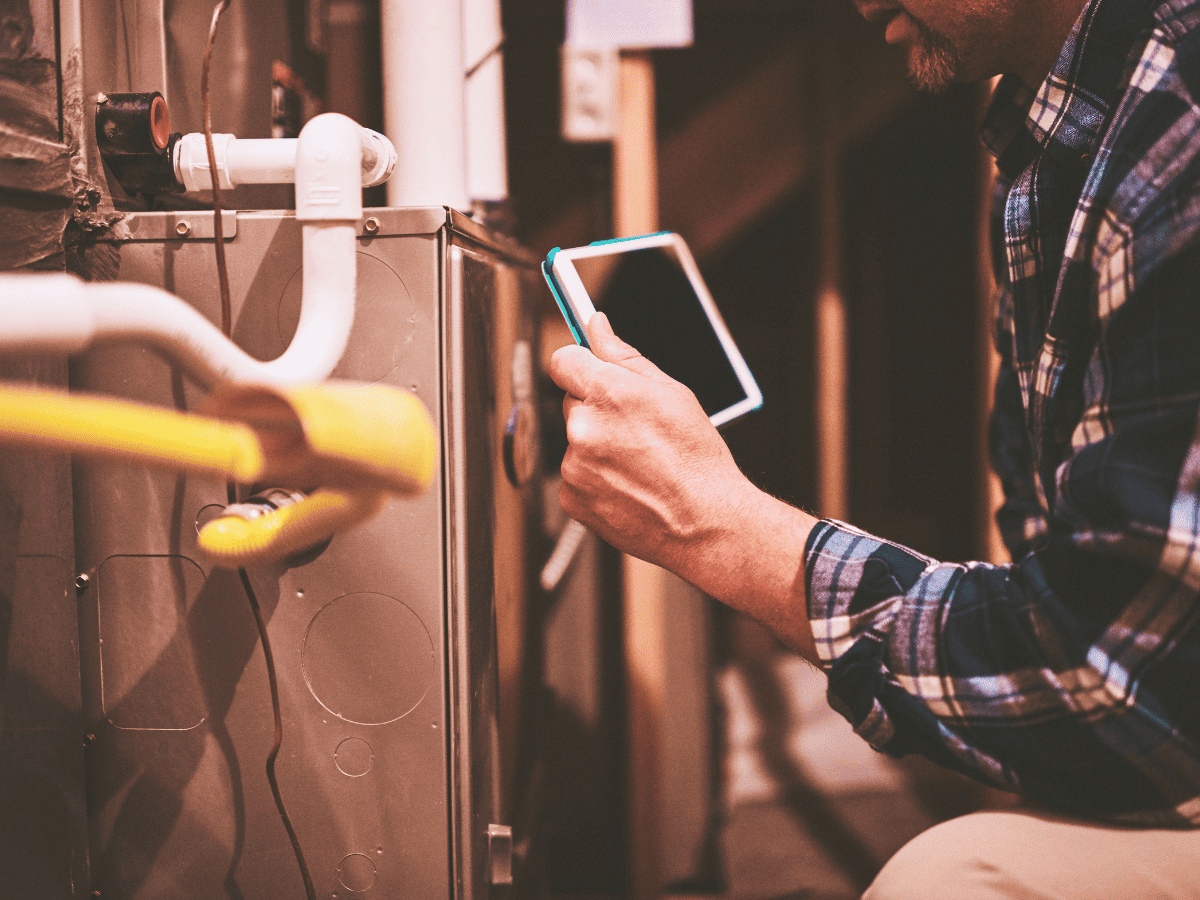Understanding the cost implications of furnace repair is crucial for every homeowner. When the colder winter months arrive, the importance of a fully functional heating system becomes all the more apparent.
However, when your unit decides to stop operating during an extreme cold wave, it’s not simply about fixing it; rather, it’s important to understand how much it will cost.
This article offers an understanding of furnace repair costs, going over common issues, factors that can affect the total expense, and the common repair jobs attributed to these costs so that you can make informed decisions.
The importance of understanding furnace repair costs
Gaining an in-depth understanding of furnace repair costs is a fundamental aspect of responsible homeownership. A savvy homeowner, armed with the right knowledge, can make well-informed decisions and preserve their hard-earned money.
The costs attached can span from one end of the spectrum to the other, contingent on the specific problem at hand.
Some snags are minor, needing just a quick touch from an HVAC professional, like issues related to a faulty fire sensor. On the other hand, complications such as problems with the integrated circuit can involve more complex fixes, raising the cost.
By having a clear understanding of these costs, you can not only prepare a budget for potential expenses, but you also safeguard yourself against unforeseen unit breakdowns.
Factors affecting furnace repair costs
Pricing is not fixed. It can fluctuate based on various factors that can directly or indirectly influence the repair process. Understanding these variables is integral to anticipating potential costs.
Here are the main factors that can impact costs.
Age of the furnace
Furnaces that are older and don’t have a warranty often require more frequent fixes, and finding replacement parts can be more costly due to their scarcity. Complete replacement might be necessary for older furnaces when the expense outweighs the benefits.
Overall condition
The better maintained a furnace is, the less likely it is to require costly fixes. Regular maintenance can keep your furnace operating at a higher efficiency and extend its lifespan.
Cost of replacement parts
Some furnace parts are more expensive than others. High-cost parts will inevitably lead to a higher total expense.
Brand and model of the furnace
Furnaces come in various types and models, each with unique components and repair procedures. The cost of repairing a gas furnace may differ from that of an electric or oil furnace.
Extent of the repair
Minor fixes will generally cost less, while extensive repairs involving multiple components or systems can significantly increase the cost.
Type of HVAC professional
Costs can also vary based on the professional you hire. Certified and experienced professionals might charge more, but their services ensure quality and reduce the likelihood of recurring issues.
While this list is not final, it gives you a good starting point for understanding what drives total costs. Always consult with a reputable HVAC professional for a comprehensive estimate and proper diagnosis. Remember: the goal is to ensure the optimal performance of your heating system, providing your family safety and comfort without straining your budget.
Cost breakdown for furnace repairs
The cost breakdown for furnace repairs ultimately comes down to three major components.
Labor costs
This is the amount you pay for the professional expertise of the HVAC technician. These costs factor in the time spent diagnosing the problem, as well as performing the actual fixes and cleaning.
Parts and materials
The price of materials and replacement parts vary according to their complexity, type, and rarity. Keep in mind that while some components might be inexpensive, others, especially for older or specialized models, can add substantially to the bill.
Additional fees
These are extra costs that might arise during the repair process. They could include emergency service fees for immediate response or after-hours work, travel fees for long-distance service, or fees for special equipment used.
Common furnace repairs
When it comes to furnace maintenance, there are several common repairs that homeowners may encounter.
Igniter repair or replacement
The igniter, a component that kindles the gas in the furnace, is critical to the heating process. If the igniter is faulty, the furnace won’t heat up.
Blower motor repair
The blower motor is responsible for circulating air throughout your home. When it malfunctions, the furnace may overheat or fail to heat your home effectively.
Heat exchanger replacement
The heat exchanger, an essential part of the furnace that warms the air, can crack over time due to repeated heating and cooling cycles. This wear and tear makes its replacement a familiar event in a furnace’s lifespan.
Thermostat replacement
A malfunctioning thermostat can cause an irregular temperature or prevent your furnace from running at all. Consequently, replacing thermostats is a standard part of maintaining a heating system.
Although these repairs are common, they won’t necessarily all occur in every furnace. The specific issues your furnace may experience depend on several factors, including its model, age and usage patterns. Always consult with an HVAC expert for detailed inspection and repair advice tailored to your unique situation.
Does your furnace need repair? Call Hurliman!
Understanding the factors influencing furnace repair costs is crucial in managing your HVAC expenses effectively. Many factors contribute to the overall cost.
Knowledge is your first line of defense in maintaining an efficient and functional heating system without breaking the bank. So, don’t let unexpected furnace repair costs catch you off guard.
Is your furnace in need of repair or maintenance? Don’t wait for minor issues to become major problems. Contact Hurliman today!





